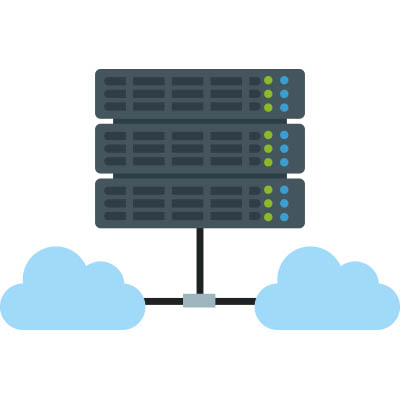Sick of On-Site Storage? The Cloud is Your Solution

Data storage can be difficult for SMBs to manage, but the cloud can make it significantly easier (and cheaper). There are real, tangible benefits of using the cloud for your data storage needs. Today, we’ll look at three major reasons why your organization should have cloud storage on its list of tech infrastructure priorities in the coming months.
Physical Servers are Expensive (and Frustrating)
Server management is a responsibility you don’t want… and we’ll explain why.
First of all, servers take up a lot of physical space in the office that could be better used for other purposes. Additionally, you have to manage and maintain your on-site server infrastructure, which we’re sure doesn’t excite you too much. When you invest in cloud storage, you’ll find you don’t need as many physical servers on-site, meaning you ditch the up-front hardware costs (costs that are projected to continue increasing in the coming months, by the way), the maintenance and management costs, and the labor it takes to keep it all running smoothly.
What you’re left with is an easily scalable infrastructure without any of the negative side effects of physical storage, which is hard to beat.
Greater Security and Backup Opportunities
You don’t want to experience a data loss scenario, whether it’s caused by a security incident, natural disaster, or human error.
That’s where the cloud comes in; it enables some of the most robust security and data backup opportunities available to SMBs. Cloud storage providers, for example, will have powerful security measures and data backup systems that would be expensive to implement in-house, including redundant backups, advanced encryption, and disaster recovery plans. When you know your data is safe and recoverable when you need it most, you free up mental bandwidth and capital to invest elsewhere in your business.
And imagine all the good you could do with that. The sky’s the limit, really.
Easier Collaboration and Accessibility
If you house all of your data in-house, on-site, how is your business supposed to flourish in this remote-friendly world?
Collaboration and file sharing are made much easier through cloud storage solutions. Teams can access files as needed based on pre-assigned user roles and privileges, regardless of their physical location or connection. This makes remote work and flexibility a possibility, which is a perk you want to offer in today’s day and age, especially if you want to attract and maintain top talent.
All in all, your business should be using cloud-based data storage in at least some capacity. For your cloud-based needs, you can turn to White Mountain IT Services. We’re happy to assess your infrastructure and help you determine the best path forward for your business.
Call us today at (603) 889-0800 to learn more.

